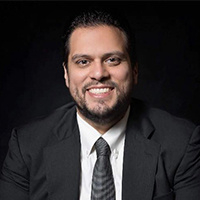 Many White Collar Crime Lawyers, Louisiana
Many White Collar Crime Lawyers, Louisiana
Sponsored Law Firm
-
 x
x

Click For More Info:
-
John D & Eric G Johnson Law Firm, LLC
415 Main St Minden, LA 71055» view mapCriminal Defense and Accident & Injury Fighting for You When You Need It the Most
At the John D. & Eric G. Johnson Law Firm, LLC, attorney Eric Johnson is renowned for his handling of cases throughout Minden and north Louisiana.
800-768-5820
Not enough matches for Many White Collar Crime lawyer.
Below are all Many Criminal lawyers.
Sponsored Lawyers
1-3 of 3 matches
Divorce & Family Law, DUI-DWI, Real Estate, Wills & Probate, Adoption
Wesley Bailey is a practicing lawyer in the state of Louisiana specializing in Divorce & Family Law. More about Wes Bailey: Managing Attorney for solo practice. Maintains a general practice based on trial and litigation in multiple fields (criminal, family, and civil law). Practices as a public defender for the 30th Judicial District Public Defenders office. Court-appointed child attorney for children deemed in need of care by the State of Louisiana. Admitted and practice in the Western District Federal Court of Louisiana. Admitted and practice in the Western District Bankruptcy Court of Louisiana. Federal Public Defender for Western District and Magistrate Court for Fort Polk Military base. Leads a competitive trial docket of at least three days per week in litigation matters.
(more)


 Eric Johnson Minden, LA
Eric Johnson Minden, LA Practice AreasExpertise
Practice AreasExpertise


